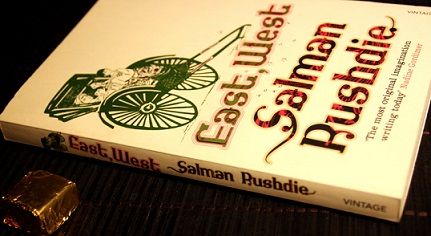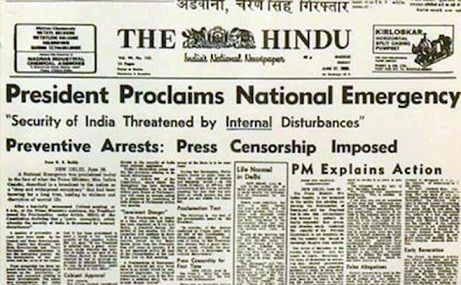Indian Writing In English
Sep 09, 2019 • 3148 views
Introduction, Authors and Poets
Indian English Literature is a true venture to depict the rare gems of Indian Writing in English. The literature has come a long way since its inception. It was a product of the colonial rule but since then, it has grown authentically and has attained an independent status in the world Literature. This literature highlights the Indian culture, tradition, social values and history. Authors bearing the flag of Indian English Writing include Tagore, Sri Aurobindo, R.K.Narayan, Raja Rao, Mulk Raj Anand-to name a few. Indian Nissim Ezekiel, Henry Louis Vivian Derozio, Kamala Das are some of the poets constituting English Literature.
Introduction to the short story- ‘Free radio'
Summary
‘The Free Radio’ by Salman Rushdie, appeared in the East, West collection was published in 1994. The story is set in the context of the Indian Emergency (1975-1977). The story is a narrative about the Ramani who is a young and handsome man. The only thing Ramani inherited from his father was a rickshaw, which became a means of earning his livelihood afterward. The narrator is concerned about Ramani’s wellness and wants to keep him away from the thief’s widow, because he used to know Ramani's parents. He falls in love with the thief’s widow and eventually marries her..The procedure of ‘nasbandi’ or vasectomy becomes the central theme of the text, after Ramani undergoes the same. Many schemes were launched in lieu of the emergency period, ‘Nasbandi’ was one of the major schemes launched . The context of the Free radio comes from this scheme, as the radio was given as a reward for performing the procedure.The story then continues and moves around Ramani’s imaginary radio. He migrates to Bombay in search of bigger opportunities and a chance at being an actor.
Characters
Ramani – the main protagonist, a young handsome man who is a rickshaw rider.
The thief’s widow –She is looked down by the whole town. She is ten years older than Ramani and has five children from her previous marriage. She gets married to Ramani.
The narrator/ old man – He knew Ramani’s parents and was concerned about Ramani. He continuously tried and warned Ramani against the thief’s widow. He was an old school teacher, one of the respected and learned of the town.

East, West Collection- Source : Books come first
About the Author
Biography and Time period
British Indian writer Salman Rushdie, born on 19 June 1947 is considered one of the most important post-colonial writers. He is also known for the novels Midnight's Children (1981) and The Satanic Verses (1988). His parents were Kashmiri descent living in Bombay. Rushdie later moved to England. His first work of fiction ‘Grimus’ appeared in 1975. Rushdie attempts to decolonize and decentre history, through a combination of postmodern and postcolonial practices.
Ideologies and Awards
Rushdie celebrates fragmentation of monolithic or authoritarian narratives. He comments on the coercive tactics used against the unresisting poor. Rushdie uses the elements of hybridity and multiculturalism in his works. He valorises hybridity and difference.
His novel Midnight’s Children’ (1981), won the coveted Booker Prize.
He also received several other awards including James Tait Black Memorial Prize (Fiction), Arts Council Writers’ Award, English-Speaking Union Award, Prix du Meilleur Livre Etranger, Whitbread Novel Award, etc.

Salman Rushdie; The Author – Source : Britannica
Backdrop of the story
Emergency period in India
The Indian Emergency of 25th June 1975-21st March 1977 was a 21-month period, when President Fakhruddin Ali Ahmed, upon advice by Prime Minister Indira Gandhi, declared a state of emergency under Article 352 of the Constitution of India, effectively bestowing on her the power to rule by decree, suspending elections and civil liberties.

Newspaper clip from the emergency period- Source : First Post
Themes highlighted in the story
Oppression, Poverty and Politics
The story includes many themes. The ordinarily narrated story has different undertones of politics, oppression, poverty and freedom.
It cleverly puts forward the state of an individual against state machinations. One of the many strategies used by government for population control was ‘Nasbandi’ (vasectomy) which was aimed at the poor and marginalized section of the society. Rushdie comments on the faulty behaviour of oppression towards the lower class and poor people, to which government would never admit.
Symbolism of free radio in text
A ‘Free radio’ as a compensation for the act of humiliation. For Ramani, the free radio was not just and animate object, it was symbol of achievement and loss both for him. He had poured his guilt and happiness into it. It was his escape mechanism from reality and a delusion object to not let him sink in the guilt of his actions.

Radio – Source : Google
Different Perspectives
Different people were impacted differently during the time period. Amongst the poor and lower class also, people of different genders and age had a different impact.
For Ramani
Ramani, the main protagonist, represents the youth of the time, high ambitions and no agency. Ramani sees the vasectomy as an opportunity, a good thing rather than seeing it as something which is depriving him off his will and freedom. This represents the manipulation and strategic cunning ways used by the state to lure poor people for their mutual benefit. There was no agency provided to Ramani, no freedom or will at all. The state machinations took Ramani’s freedom, his gift of nurturing lives, his identity and only pushed him to drown in the fictional world of a ‘free radio’.
For the Old Man
The old man can be seen as someone with old ideologies but far more experience than the youth. He saw Ramani as his son and wanted to use his wisdom for his good. The state machinations deprived him off his sanity and peace and affected him and his surroundings. He saw the exploitation of his country. The state manipulating strategies has so much affected the people around him that even his wisdom and experience cannot save them from luring into the trap.
For Thief’s Widow
The thief’s widow is looked upon by the whole town as a slut or a whore. The author’s idea of not telling the name of the thief’s widow imparts the idea of how women were to carry their husband’s identity and crimes all their life. The point that his husband left her no money and all she is doing is protecting her children is overshadowed by her being the seducing thief’s widow. The status of women in the post-colonial was of humiliation, depriving them of all the rights and giving them no identity or agency whatsoever. Even the blame of Ramani undergoing vasectomy was put upon her. The state exploited the status of women as mere possessions, with no ambitions or identity.

A white caravan where Vasectomy procedure used to be performed- Source : Vector stock
Excerpts from essays
By Bruce King
In his essay on ‘Modernism’, Bruce king reflects upon the fact that “Since Independence, Indian English poetry has already evolved into a literary tradition with a history of major journals.”
By Farah Agha
In her essay ‘Sexism in the free radio”, Farah Agha points out that the thief’s widow was blamed for everything, including his previous husbands death. Ramani undergoing vasectomy was also considered a decision forced upon him by the thief's widow. She was just an independent women earning her livelihood yet she was insulted and humiliated by the society.
Personal Opinions and Review
The narrator attempted to narrate an ordinary story in a different way to implicate the working of the state machinations against the individuals and what and how it affected all the domains of life and people. I feel this story reflected upon the most tedious as well as controversial topics with ease and simplicity. The hidden meaning and implication tend to make you see the most ordinary things in different light.
Conclusion
The story was successful in depicting how all the exploitation and oppression was done under ‘National Benefit’ and towards the growth of nation. It is about the hegemonies construe to depict the reality of nationalism. This short story is definitely to move you and make you think about things differently.
Link to my next article- https://wrytin.com/maryarizwan/thousand-splendid-suns-k0ja2qc0
